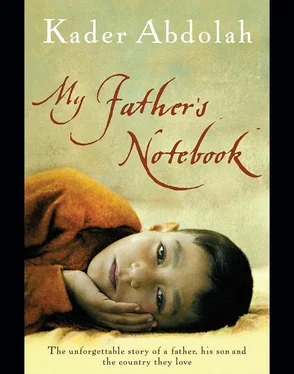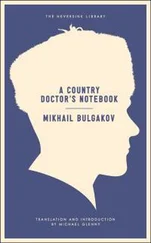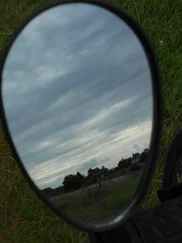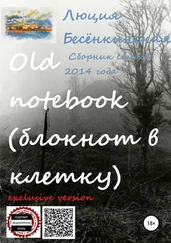Nasreddin stops an old man. “Please, brother, what’s got into that young man?”
“He’s in love. We’ve all come to watch, so we can learn what love is.”
My father took me to the square every evening. The woman in the hat usually arrived later on and the three of us would go sit on a bench, with me in the middle, to act as their interpreter.
Who was she? How had they met? I had no idea.
My poor father had trouble concentrating on his work. He sewed wrong numbers on the carpets and created chaos in the account books and warehouses. One of the employees dropped by to warn Tina: “I don’t know what’s wrong with him, but if he doesn’t snap out of it, he’ll be fired.”
He didn’t snap out of it and he was fired.
He was absent-minded at home, too. He stared out of the window, or tried to find a quiet place where he could write in his notebook. Tina warned the family, “Help! Akbar has fallen into disgrace!”
As a Persian, you don’t actually need to have been in love yourself. You can read about it in Persian stories, in Persian myths and even in the Koran. Like every Persian, Tina must have known the story of the sheikh and the tarsa (Christian).
The sheikh, an elderly Sufi leader, sets out on foot for Mecca, together with thousands of his followers. Months go by. Then, in one of those foreign cities, the sheikh sees a beautiful tarsa in the bazaar and immediately falls in love with her. It couldn’t get any worse — to be headed for Mecca and to fall in love with a Christian! The sheikh abandons his plan and sets off, barefoot, in search of the beautiful tarsa . The entire Muslim world is horrified. “The sheikh has fallen into disgrace!” they cry.
My father and I had donned our ties again. We were sitting on a bench in the square, beside the woman in the hat, when suddenly, off in the distance, I thought I saw two of our horses. How could that be? How could the horses we left behind in Saffron Village now be trotting towards the square? Then I recognised our wagon and, moments later, heard the voice of my oldest aunt as she talked to my other aunts and uncles.
The horses stopped in the glow of a nearby streetlamp.
My oldest aunt got out and marched over to my father. She grabbed hold of his tie and dragged him over to the wagon, like a cow.
My aunts held him down, while my uncles undid my father’s red tie and tossed it to the ground. Then my oldest aunt bustled over, grabbed me by the ear and dragged me over to the wagon, too. “A fine job you did, my boy!” she exclaimed. “A fine job of looking after your father!”
We all got in and the horses trotted off.
I could hear my father crying. I couldn’t see him very well, however, since he was sitting behind my aunts, with his head bowed and his hands over his face.
I looked back at the square. The woman was still there, standing in the lamplight and clutching her hat as if there were a strong wind. She watched us go.
The next day my aunts and uncles loaded our belongings into the wagon and took us to another city — Senejan. I have no idea how they did it, but the arrangements had already been made. We had a flat and my father had a job in a textile mill.
He spent all day walking up and down a row of looms and reconnecting broken threads. He wasn’t allowed to move away from the machines, not even for a minute.
• • •
I no longer saw my father in the daylight hours, since he left home before sunrise and got back after sunset. Tina immediately gave him his dinner. He ate in silence, sat for a while, held his daughters in his lap, drank one last cup of tea and went to bed.
When I think back to him at that time, I always picture him asleep.
Sometimes he didn’t even bother to take off his work clothes. He’d lie down for a short rest, then fall into a deep sleep from which we couldn’t wake him.
“Ishmael, pull the covers up over your father,” Tina used to say. Another memory from that time. I knew I was supposed to cover him up, but I always waited for Tina to ask me. Maybe that’s why this particular phrase has stuck in my memory.
The woman in the hat had arrived to split my father’s life in two. She ended one phase of his life and ushered in another. Otherwise she had nothing to do with us and we had nothing to do with her. She came, did her job, and left.
Aga Akbar had once been a highly respected carpet-mender, who had galloped on his horse from one village to another with his head held high. His hair had been black and his white teeth had glowed in the dark. After our move to Senejan, his hair turned grey and he looked ill. All he did was work, work, work.
I leaf through my father’s notebook with hopes of finding out more about that time. Since the pages don’t have numbers, I pencil them in on the lower right-hand corner of every page. On page 134 I see a few tiny sketches. I assume they represent the phases of the moon: a new moon, a quarter moon, a half moon, a three-quarter moon, a full moon, and then suddenly a dark moon and a red moon.
He clung to a habit he’d acquired during the first period of his life: no matter where he was or where he went, he always came home by full moon. When night fell and everyone was asleep, he would set the ladder against the wall and climb up onto the roof. He’d sit on our roof, stare at the moon and hum.
Hum?
What on earth could he hum if he didn’t know any lyrics or melodies? If he didn’t know the songs of the lovesick medieval poet Baba Taher and had never heard this famous Sufi leader’s love poems?
His enchantment with the full moon was a throwback to his life in Isfahan. The nights there had been full of stars. The moon had hung above the magical mosques like a heavenly lamp.
If you stood in Naqsh-e-Jahan Square on a clear night, you could pluck the moon right out of the sky. It’s what the ancient Persian poets did with their poetry.
Aga Akbar was mesmerised by the sky. During the lonely nights, he would steal up to the roof of the Jomah Mosque, sit down, lean back against the dome, wrap his arms around his knees and stare into the night. The night brought him closer to the inexplicable, to Allah, to love. Perhaps the best way to describe this is to quote two verses of a very long, old song:
Az nayestan ta ma-ra be-b’ridand
dar nafir-am mard o zan nalidand
sineh khwah-am sharheh sharheh az firaq
ta be-goy-am sharh-e dard-e ishtiyaq.
Every Persian knows this song, or at least these two verses. You hum them when you’re in love. Even though Aga Akbar had never heard the words, he would still hum that song.
It’s about a reed that stood in a field of reeds. Someone cut it down to make a flute. The reed then laments:
From the moment I was cut down they all
Played me and poured out their longings.
I seek an aching heart, torn by loneliness,
So I can pour out my own painful yearnings.
One time I borrowed a projector. When the full moon rose that night and my father was about to lean the ladder against the wall and climb up on the roof, I tugged his sleeve: “Come, there’s something I want you to see.”
He didn’t want to come with me, he wanted to see his moon.
“Listen, you don’t have to go up on the roof. I have a moon for you, right in your own living room.”
He didn’t understand.
“The moon,” I signed. “I’ve put the moon into that machine. Especially for you. Come look!”
He smiled, the usual bland smile he wore whenever he didn’t understand something. I pulled up a chair for him and closed the curtains.
“Sit down!” I signed and turned off the light.
He hesitantly sat down and stared at the blank screen.
Читать дальше












